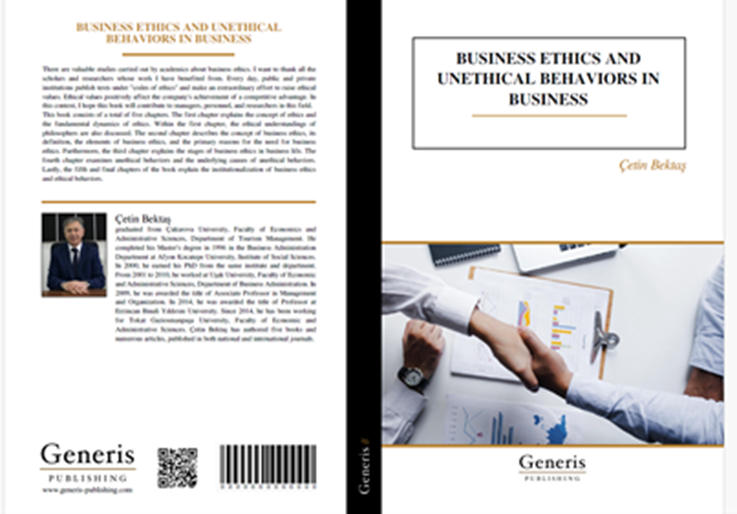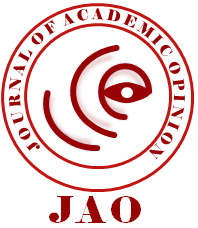Decentralization through the Lens of the Legacy of Power and Ethnic Conflicts: Western Balkan Case
DOI:
https://doi.org/10.5281/zenodo.7497545Keywords:
Decentralization, Western Balkan countries, Post-Communist Era, European UnionAbstract
Decentralization constitutes one of the main pillars of democracy. Is a very important element of the Public Administration Reform as a whole and have a high importance in the entire process. The countries of the Western Balkans have started this process since the fall of communism, but it still remains a current challenge. It is one of the criteria still not fully met in the context of their European Union membership. Decentralization theorists refer to various models of it, known as territorial or ethnic decentralization. In societies with conflicting ethnic heritage often the model encountered is ethnic decentralization, while in those without ethnic conflicts the territorial one. This paper presents the main decentralization reforms in three countries of the Western Balkans after the fall of communism and their current stage after more than 30 years, focusing on highlighting the impact of the legacy of power and ethnic conflicts in the current stage of decentralization, seen through the lens of progress in the framework of European Union membership. In the analyze is taken Albania, a country that inherited a highly centralized power from the communist period versus Kosovo and Bosnia & Herzegovina, two countries that inherited a relatively de (centralized) power in the communist period but with a deep inheritance of ethnic conflicts.
References
Bojicic-Dzelilovic, V. (2011). Decentralisation and Regionalisation in Bosnia – Herzegovina: Issues and Challenges”, LSEE Papers on Decentralization and regional Policy, Nr 2, July 2011, Vaduz, Liechtenstein.Estrin, S. and Uvalic, M.(2016). ‘Foreign direct investment in the Western Balkans: what role has it played during transition?’ Comparative Economic Studies, Volume 58, Nr 3, June 2016.
European Commission (2012). “Progress Report for Albania”, Brussels, 10.10.2012.
European Bank for Reconstruction and Development (2014). “Comercial Laws of Bosnia and Herzegovina”, August 2014.
European Commission (2018). “Key findings of the 2018 Report on Albania”, Brussels, April 2018, file:///C:/Users/annax/Downloads/MEMO-18-3403_EN.pdf.
European Commission (2018). “Key findings of the 2018 Report onBosnia and Herzegovina”, Brussels, April 2018, file:///C:/Users/annax/AppData/Local/Packages/Microsoft.MicrosoftEdge_8wekyb3d8bbwe/TempState/Downloads/MEMO-18-3408_EN%20(1).pdf.
European Commission (2018). “Key findings of the 2018 Report on Kosovo”, Brussels, April 2018, file:///C:/Users/annax/AppData/Local/Packages/Microsoft.MicrosoftEdge_8wekyb3d8bbwe/TempState/Downloads/MEMO-18-3404_EN%20 (1).pdf.European Commission (2021). “Key findings of the 2021 Report on Albania”, Strasbourg, October 2021, https://ec.europa.eu/commission/presscorner/detail/en/qanda_21_5276.
European Commission (2021). “Key findings of the 2021 Report on Bosnia and Herzegovina”, Strasbourg, October 2021, https://ec.europa.eu/commission/presscorner/detail/en/qanda_21_5277.
European Commission (2021). “Key findings of the 2021 Report on Kosovo”, Strasbourg, October 2021, https://ec.europa.eu/commission/presscorner/detail/en/qanda_21_5278
EC(2018). “Communication from the Commission to the European Parliament, the Council, the European Economic and Social Committee and the Committee of the Regions; A credible enlargement perspective for and enhanced EU engagement with the Western Balkans”, Strasbourg, February 2018, https://ec.europa.eu/commission/sites/beta-political/files/communication-credible-enlargement-perspective-western-balkans_en.pdf.
Fouere, E. (2017). ‘Western Balkans and the EU: Still in stand-by’, Commentary, Italian Institute for International Political Studies, 10 July, available at http://www.ispionline.it/en/pubblicazione/ western-balkans-and-eu-still-stand-17166.
Hajnal,G. and Péteri, G. (2010). “Local reform in Kosovo”, Final Report, Pristina: Kosova Foundation for Open Society , February 2010.
Hunya, G. and Schwarzhappel, M. (2016). “FDI in Central, East and Southeast Europe: Slump despite Global Upturn”, FDI Report 2016, The Vienna Institute for International Economic Studies, Vienna.Available at https://wiiw.ac.at/slump-despite-global-upturn-dlp-3899.pdf.
HRW, (2001) https://www.hrw.org/reports/2001/kosovo/undword.htm.
Law (2000). “On the administrative-territorial division of the units of local government in the Republic of Albania”, 8653/2000.
Law (115/2014). “On the administrative and territorial units of local government in the Republic of Albania”.
Loew, D. (2013). Decentralization as a model for conflict transformation: the case of Kosovo, Zentrum für Konfliktforschung Philipps-Universität Marburg,Marburg/Lahn.
Ministria për Çështjet Vendore (2014). “Administrative and Territorial Reform”, General Report to the Committee on Administrative and Territorial Reform,Tirana, April 2014.PM Office of Kosovo ed.PM Office of Serbia (2013). “Serbia/Kosovo: The Brussels Agreement”, Brussel, April 2013, file:///C:/Users/annax/OneDrive/Desktop/Turkay/Serbia/Serbia%20-%20Kosovo%20Agreement%202013.pdf.
Philip Shenon, ‘State Dept. Now Estimates Serbian Drive Killed 10,000’, New York Times.
Prifti,K. (1990). E vërteta mbi Kosovën, Akademia e Shkencave, Tirane.
Propozimi Gjithëpërfshirës për Marrëveshjen për Statusin e Kosovës 2 shkurt (2007), http://old.kuvendikosoves.org/common/docs/Propozim%20per%20Statusin%20e%20Kosoves.pdf.
Rregullore Nr. (2000). Unmik/Reg/2000/43, 27 Korrik 2000, mbi Numrin, Emrat dhe Kufijtë e Komunave, aneks A.Treisman, D.(2007). The arcitecture of government – Rethinking Political Decentralization, Cambridge University Press, Cambridge, United Kingdom.
Schneckener, U. (2002). Auswege aus dem Bürgerkrieg, Modelle zur Regulierung ethnonationalistischer Konflikte in Europa, Frankfurt a.M: Suhrkamp Verlag.
Shenon, P.(1999).‘State Dept,Now Estimates Serbian Drive Killed 10,000’, New York Times.
United Nations, General Assembly (Security Councel) (1995). “General Framework Agreement for Peace in Bosnia and Herzegovina”, Dayton - USA, 14 December 1995.
United Nations General Assembly (1996). “Resolution 50/225 on Public Administration and Development”. New York, United States, April 1996.
UNMIK (2000). “Regulation 2000/45 on Self Government of Municipalities in Kosovo”, 11 August 2000.
United Nations / DESA (2003). “Bosnia and Herzegovina – Public Administration/ Country Profile”, New York – US, December 2003.
World Bank (2017). “Western Balkans: Revving up the engines of growth and prosperity”, World Bank Group, Washington DC, available at https://openknowledge.worldbank.org/bitstream/handle/10986/28894/ ACS22690.pdf.
Zwierzchowski, J. and Tabeau, E. ( 2010). “The 1992-95 war in Bosnia and Herzegovina: Census-based multiple system estimation of casualties’ undercount“,Conference Paper for the International Research Workshop on ‘The Global Costs of Conflict’ The Households in Conflict Network (HiCN) and The German Institute for Economic Research (DIW Berlin), Berlin, 1-2 February 2010.
Downloads
Published
How to Cite
Issue
Section
License
Copyright (c) 2021 Journal of Academic Opinion

This work is licensed under a Creative Commons Attribution 4.0 International License.





